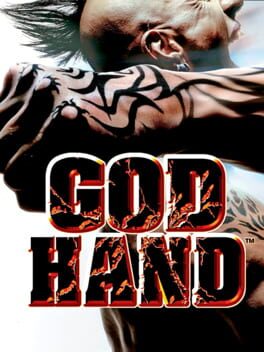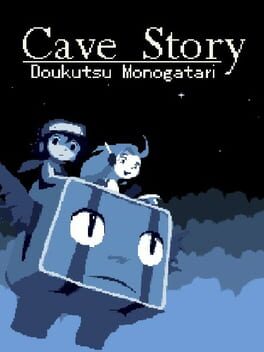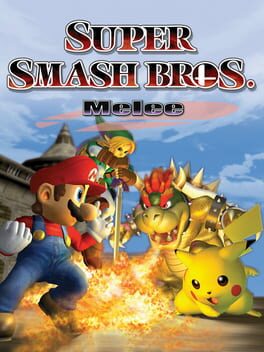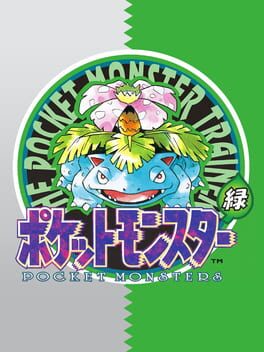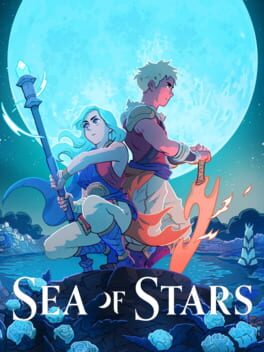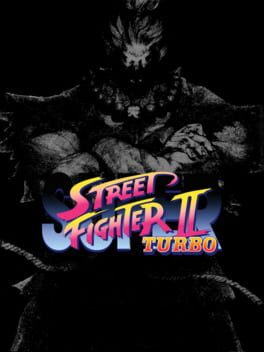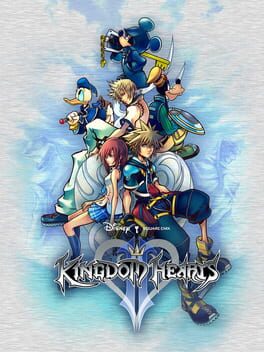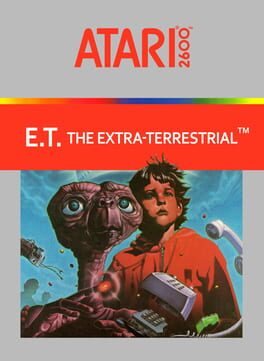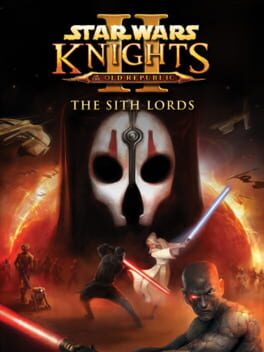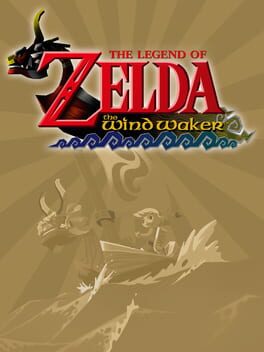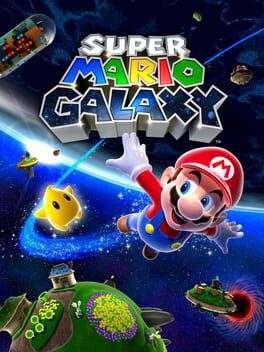nitronikolai
22 reviews liked by nitronikolai
God Hand
2006
I used to dream about doing the wood plank swing animation on my boss at my retail job
Cave Story
2004
A gigantic, influential game created by the passion of one man, I'm glad to say that Cave Story entirely lives up to it's legacy. From the charming characters in a somber world, to the floaty-yet-precise run n' gun gameplay to Pixel's iconic artstyle, to the secrets, to the narrative, to the Balrog; I was completely enthralled in this game from start to finish.
Possibly the only reason humanity as a species was put on this bitch of an earth
Lavender Town syndrome is very real and the biggest example of when Pokémon games had SOUL
You can’t convince me the newer games are good if children didn’t DIE for them
You can’t convince me the newer games are good if children didn’t DIE for them
Sea of Stars
2023
This review contains spoilers
I am not immune to propaganda. Show me a trailer for an indie JRPG featuring scripted encounters on the field maps, dual techs, and guest tracks by Yasunori Mitsuda, and I'll go "oh, a Chrono Trigger inspired indie JRPG, I sure hope they actually learned the right lessons from the classics" and drop $30 to see if they did.
They didn't.
(Full spoilers for both Sea of Stars and Chrono Trigger.)
I criticized Chained Echoes for being overly derivative of various golden age JRPGs, but to its credit: it feels purposeful in its imitation. It re-uses elements from older games wholecloth, smothering its individual identity under a quilt of influences, but I can appreciate the craftsmanship and intent behind it. It's clearly made from a place of love.
I don't get that vibe from Sea of Stars at all. I complained about some tediously self-aware dialogue in the early hours, and while it only dips down quite that low once or twice more, it colored the entire game with a feeling of self-aggrandizement. In fairness to what I wrote then (and based on a lengthy speech in the hidden Dev Room) it sounds like the devs truly did want to make a JRPG and pay homage to their childhoods. But to me, harsh as it may be, Sea of Stars feels like the devs thought making a JRPG was easy: just copy the greats (specifically, Chrono Trigger), and it'll work out. Based on sales and reviews, it is working out for them, but I'm the freak out here with highly specific ideas about why Chrono Trigger was good and Sea of Stars doesn't seem to agree with my assessment. This inherent friction lasted across the game's entire 30-35 hours.
You play as Zale and Valere, paired Chosen Ones whose innate Sun/Moon powers allow them to do battle against Dwellers, ancient beasts left behind when the villainous Fleshmancer set his sights on this plane of reality. He has since moved on to another world, but Dwellers left unchecked evolve into World Eaters, planar monstrosities that do exactly what it sounds like they do. The Solstice Warriors must hold a never-ending vigil in case previous generations missed a Dweller, battling them when their powers peak during an eclipse.
Joining them is Garl the Warrior Cook, the pair's childhood friend and the only character with anything resembling charisma; Seraï, a masked assassin of mysterious origin; Resh'an, a former companion of The Fleshmancer; and B'st, an amorphous pink cloud with almost no relevance to the plot a-la Chu-Chu from Xenogears.
Battles happen on the field map, like Chrono Trigger, and their main feature is essentially the Break system from Octopath Traveler. When a monster is charging up a special move, they gain "locks" that can only be broken by hitting them with specific types of damage; break them all, and they lose their turn. It's frequently impossible to break all the locks - you simply do not have the action economy to put out that many hits - and so you're usually playing triage regarding which special move you're willing to take to the face.
The battle system also takes a page from Super Mario RPG and includes timed hits and blocks for every attack. Tutorial messages insist to not worry about these and just think of them as bonus damage, but most of your attacks (especially multi-target spells) won't function properly unless you're nailing the timing. You'll often still do some damage, but the number of hits is the most important thing when you're dealing with Locks. There is an accessibility option (purchasable with in-game currency) to make timed hits always land in exchange for lower damage, but that only works for basic attacks.
Only a handful of skills have a message explaining when to push the button, and for the rest? Tough luck, figure it out. It's inconsistent at best and opaque at worst. And I mean literally opaque: because of how the field maps and graphics are constructed, character sprites (especially Seraï) often end up entirely offscreen or covered by other sprites when you're meant to time a press. This wasn't a problem in SMRPG or Mario & Luigi because those had bespoke battle screens with fairly consistent framing for timed hits; the concept isn't very compatible with CT style battles without a way to maintain that consistency.
I legitimately enjoyed the battle system for about the first 30% or so of the game, at which point the startling lack of variety in the battle options began to chafe. Every character has a basic attack, a mere three skills, and a Final Fantasy summon-like Ultimate attack that requires a bar to charge up. There's around a dozen "Combo" moves (read: Dual Techs) across the entire party, but the meter to use them charges so slowly they might as well only exist during boss battles. Your maximum MP caps at around 30 (at the max level, which requires a lot of grinding), skills cost anywhere between 4 and 11, and your potion inventory is limited to 10 items, meaning you're going to almost always rely on basic attacks - which recover 3 MP on a hit - for most battles. Landing a basic attack lets you imbue another basic attack with a character's inherent elemental attribute, which is the only way to break most locks once you're in the mid-game.
Play SMRPG sometime (perhaps the upcoming remake, even) and you'll figure out quick that Timed Hits are cool because if you do them properly it makes battles faster. You aren't trying to get 100 Super Jumps in every single battle because that would be exhausting and slow. Sure, in Chrono Trigger I'm solving 80% of encounters with the same multi-target spells, but that also means they're over in less than a minute. In Sea of Stars, if I mess up an early button press with Moonerang or Venom Flurry, it might not even hit every enemy, which probably means I won't break the locks I need to, which means they'll do their long spell animation. A trash mob battle will probably take two full minutes of me carefully trying to land my timed hits and manage my MP. That shit adds up.
I wouldn't quite go so far as to say Sea of Stars disrespects your time, but a lot of shit adds up. The backgrounds and sprite work are universally great - really beautiful stuff, great animations - but there are tightropes/beams scattered everywhere around the game world, seemingly placed only so you're forced to slow down and look at the backgrounds. From a purely quality of life standpoint, I don't know why you have to hold the button for so long when cooking something, especially if it's a higher-tier restorative. The overworld walk speed is agonizing. The narrative flails in several bizarre directions, only cohering in the broadest possible sense of "we need to beat the bad guy".
Comparatively, Chrono Trigger never stops moving. Your objectives in CT are clearly signposted and make logical sense, even when they string together into longer sequences. To save the world from the Bad Future, we need to defeat the big monster, and we learn the monster was summoned by an evil wizard. To defeat the evil wizard, we need the magic sword, but the sword is broken. To re-forge the sword, we need an ancient material, so off to prehistory we go!
It may sound tedious when written out this way, but the crucial element is that this only takes something like 4 or 5 hours. You're never stuck in any individual location longer than 45-60 minutes, and that's if you stop to grind (which you don't need to). Working at a leisurely pace, you can 100% Chrono Trigger in somewhere between 15 and 20 hours. My most recent playthrough - in which I deliberately walked slowly, grinded out levels, and talked to every NPC for the sake of recording footage - clocked in at about 17.
Sea of Stars doesn't stop introducing new plot elements until the middle of the end credits and makes little effort to tie them together in a cohesive way, instead relying on the inherent fantasy of the setting to smooth over any bumps. For example, take The Sleeper, a massive dragon that once ravaged the world before being sent into an eternal slumber. It explicitly isn't a Dweller, being little more than a curiosity on the overworld map. It bears no relevance to the plot other than as a mid-game side objective to earn the privilege to progress the actual story.
Zale and Valere, despite having speaking roles, do not possess an iota of personality between them; they are generically heroic and valiant and stop at every stage along their quest to help the weak and downtrodden as JRPG Protagonists are wont to do. The idea that Garl should not join them on their dangerous journey - as he is a mere normie - is raised once or twice, but ultimately disregarded due to Garl's endless luck and pluck. He barrels through any possible pathos or character development by simply being the Fun Fat Guy at all times, whether or not the next step follows logically.
No less than three times do the characters visit some kind of Oracle or Seer who reads the future and literally tells them what is going to happen later in the story, sometimes cryptically and sometimes giving explicit instructions. At one point a character awakens from a near-death experience having suddenly gained the knowledge of how to restart the stalled plot, launching into a multi-stage quest that has no logical ties to the party's objective. It's just progression, things happening because something has to happen between points A and B.
Another example: a late game dungeon introduces a race of bird wizards complete with ominous side-flashes to their nefarious scheming atop their evil thrones. They are relevant for only that dungeon, which is broadly just an obstacle in the way of the party's actual objective. I don't understand the intent. Is it supposed to be funny that this guy looks like Necromancer Daffy Duck? If so, why is the story genuinely trying to convince me of the sorrow of their plight and how it relates to the lore (in a way that also isn't relevant to the current events of the plot since it's shit that happened like 10,000 years ago)? How am I meant to react to this? Why is it here, in the final stretch of the story? I was asking these kinds of questions the entire game.
Presumably, the plot is like this because it's trying to imitate JRPGs of the time, which had a reputation for sending you on strings of seemingly random errands to defeat monsters or fetch items. You know what game doesn't do that? Chrono Trigger! The game Sea of Stars is obviously trying to position itself as a successor to!
Is it fair that I criticize the Solstice Warriors for being flat characters when Crono literally does not speak and his party consists of a bunch of genre caricatures? Yes, because CT doesn't try to be more than that. There's no need for wink-wink "did you know you're playing a JRPG? eh, ehhh?? aren't they so wacky with plots that barely make sense bro???" writing in Chrono Trigger because it knows that you know that it knows that you know you're playing a damn JRPG. It's got Akira Toriyama art like Dragon Quest! It says Squaresoft on the cover, those dudes made Final Fantasy!
You're on a roller coaster through time and space! You're here because you want to see knights and robots and cavemen do exactly what knights and robots and cavemen do. Of course Ayla the weirdly sexy cavewoman will say "what is raw-boot? me no understand" after Robo the robot shoots dino-men with his laser beams. It's comedic melodrama, it's operatic in a way that leverages genre familiarity.
Sea of Stars isn't willing to fully commit to this approach, undercutting its own pathos with half-measures and naked imitation. I'd be so much more willing to accept the sudden-yet-inevitable betrayal at the end of the first act if the game didn't then whip around and say "haha, we sure did the thing, huh?" Yeah, I saw. We both clearly know that you're not being clever about it, so why is it in the game?
The answer is usually "because it was in Chrono Trigger", without any examination of what made it work. Like, okay, everybody knows Chrono Trigger is "a good game", but do you know why it's a good game? I could see someone playing it and just thinking, "I don't get it, this is an incredibly generic JRPG," but what you have to understand is that CT is an immaculately constructed generic JRPG. Simply using the same ingredients isn't going to create the same result.
Take the most famous twist of CT: at a critical moment, silent player avatar Crono sacrifices his life to get the rest of the cast to safety, removing him from the party lineup. In the context of 1995, this is a shocking, borderline 4th-wall-breaking twist. Permanent party member death wasn't unheard of - take FFIV or FFV - but the main character? Crono was the mandatory first slot of the party, a jack-of-all-trades mechanical role akin to a DQ Hero. Even though he doesn't have a personality, Crono's consistent presence and the story's inherent melodrama lend a tangible feeling of loss.
Using the power of time travel, the player can undertake a sizeable sidequest to bring Crono back to life, replacing him at the instant of his death with a lifeless doll. He rejoins the party, no longer a mandatory member of the lineup. At this point in the game, you arguably don't even want to bring him along on quests, because he still doesn't have dialogue. Crucially, the entire quest is optional; the first time I played CT, I accidentally did the entire final dungeon (also optional!) first, assuming it was a necessary step.
Sea of Stars tries to do this with Garl. He takes a fatal blow for Zale and Valere then dictates the plot for the next two hours of the game while living on literal Borrowed Time. You journey to an ancient island floating in the sky (sick Chrono Trigger reference bro!) and split the party to pursue multiple objectives in multiple dungeons, culminating in a whole sequence complete with bespoke comic panels of the party mourning their best friend for months offscreen.
This didn't work because I, the player, had no attachment to the character. Garl is the least mechanically useful party member, dealing the same damage type as Valere but without any elemental type to break locks; his heal skill is more expensive than Zale's and his repositioning skill is unnecessary once you have all-target attacks. I dropped him for Seraï at first opportunity and literally never put him back in the main lineup.
Nor do I buy into Zale and Valere's feelings. Protecting Garl is supposed to be one of their main motivations - it's a major scene in the prologue, and leads to an entire dungeon detour in the first act - but they haven't put forth any genuine effort to prevent him from hurling himself into danger's way throughout the game. As noted, he just repeatedly barrels his way through the plot by demanding it continue, even after he's fucking dead.
The true ending of Sea of Stars requires beating the game once, then completing numerous optional objectives which lead to... can you guess? Going back in time, replacing Garl at the instant of his fatal wound with a body double (which means B'st was pretending to be Garl - someone he's never met - during that entire segment, a completely absurd notion), and pulling him back into the present. You do another lengthy sidequest to get an invitation to a fancy restaurant, and then you can fight the true final boss, again, because Garl simply demands it when you get there.
If this CT retread had to be in the game, it would have obviously been better served by Garl being the main player character; go all the way with the imitation. Any vague gesturing the narrative makes towards not having to be The Chosen One to still fight for justice would carry more weight if you weren't playing as the Solstice Warriors, instead scrambling to keep up with them as the worst party member. As things stand, it's just a big ol' reference to a better game, a transparent play for Real Stakes that rings hollow.
An even more egregious example is The Big Thing at the start of Act 3, once the cast finally sets sail upon the eponymous Sea of Stars. Leaving their world of fantasy and magic, they enter a post-apocalyptic sci-fi world, complete with a brief graphics shift into 3D and a full UI overhaul. It's intended to be a shocking twist, a mind-blowing reveal... but it doesn't work, because A) it's a blatant crib of CT, and B) it's all in service to a punchline.
In Chrono Trigger, once the game has fully established the time travel concept by sending you to 600 AD and back (about three hours of gameplay), the party is forced to flee into an unknown time gate. It spits them out to 2300 AD, a wrecked hell world in the depths of a nuclear winter. Here, the party discovers an archive computer recording that sets up their goal for the entire rest of the game: prevent the apocalypse by stopping Lavos, a titanic creature buried deep within the earth.
It's important that this happens at the beginning of the game. You're expecting some form of going to the future to see goofy robots - it's a natural extension of time travel as a plot device - but 2300 AD is a genuine shock in the moment. It serves as a constant reminder of the stakes: this is the bad future, and you're trying to stop it from ever happening. After gallivanting through medieval times, the contrast really works.
In Sea of Stars, you probably aren't expecting to suddenly fight a robot when you're chasing The Fleshmancer across worlds. It's a potentially cool swerve, but what's actually gained by having the final act be in sci-fi land other than some kind of "dang, didn't see that coming" factor? He isn't even actually in control of the robots or anything, he just hides his castle here because... well, it's unclear why, because even once you restore the sun and moon and fight him in the True Ending, he only seems momentarily inconvenienced.
But it sure is a CT reference! And it's also a joke, because your mysterious sometimes-assassin-sometimes-swashbuckler companion Seraï reveals that this is her home world, pulling off her mask to reveal her metallic endoskeleton. You see, she used to be human, but had her soul chewed up and put into this mechanical body. She is a literal Ninja Pirate Zombie Robot.
You know! Ninja Pirate Zombie Robot! Like TVTropes, lol? Wacky JRPG party members!
How do you expect to maintain any investment after that? There's like four more dungeons in sci-fi world - including aforementioned Necromancer Daffy - and I just couldn't give a shit about any of it. The post-apoc stuff doesn't add any stakes, because we already know the Fleshmancer has ruined countless worlds and we're just chasing him to this one in particular because Seraï asked us to (and I guess they want revenge for Garl). I wasn't having fun, I was just annoyed.
I'm baffled. Sea of Stars clearly knows how to outwardly present itself as a quality JRPG. At a glance, the game looks like everything I could want: beautiful artwork, smooth gameplay, fun characters. Something that gets why I fell in love with the genre in the first place, and why I hold up Chrono Trigger as its crown jewel.
But it just isn't that, at least not to me, and that's... I dunno, existentially troubling? Based on the reviews I've seen, I'm clearly in the minority for feeling this way. I do believe the dev team and all of these players also love JRPGs. But if they do, it must be in a way fundamentally different from the way I do, because otherwise I simply don't understand the creative choices in Sea of Stars. I want more than this.
Maybe one day, hopefully sooner than later, we'll get the Disco Elysium of JRPGs, but today sure isn't that day.
They didn't.
(Full spoilers for both Sea of Stars and Chrono Trigger.)
I criticized Chained Echoes for being overly derivative of various golden age JRPGs, but to its credit: it feels purposeful in its imitation. It re-uses elements from older games wholecloth, smothering its individual identity under a quilt of influences, but I can appreciate the craftsmanship and intent behind it. It's clearly made from a place of love.
I don't get that vibe from Sea of Stars at all. I complained about some tediously self-aware dialogue in the early hours, and while it only dips down quite that low once or twice more, it colored the entire game with a feeling of self-aggrandizement. In fairness to what I wrote then (and based on a lengthy speech in the hidden Dev Room) it sounds like the devs truly did want to make a JRPG and pay homage to their childhoods. But to me, harsh as it may be, Sea of Stars feels like the devs thought making a JRPG was easy: just copy the greats (specifically, Chrono Trigger), and it'll work out. Based on sales and reviews, it is working out for them, but I'm the freak out here with highly specific ideas about why Chrono Trigger was good and Sea of Stars doesn't seem to agree with my assessment. This inherent friction lasted across the game's entire 30-35 hours.
You play as Zale and Valere, paired Chosen Ones whose innate Sun/Moon powers allow them to do battle against Dwellers, ancient beasts left behind when the villainous Fleshmancer set his sights on this plane of reality. He has since moved on to another world, but Dwellers left unchecked evolve into World Eaters, planar monstrosities that do exactly what it sounds like they do. The Solstice Warriors must hold a never-ending vigil in case previous generations missed a Dweller, battling them when their powers peak during an eclipse.
Joining them is Garl the Warrior Cook, the pair's childhood friend and the only character with anything resembling charisma; Seraï, a masked assassin of mysterious origin; Resh'an, a former companion of The Fleshmancer; and B'st, an amorphous pink cloud with almost no relevance to the plot a-la Chu-Chu from Xenogears.
Battles happen on the field map, like Chrono Trigger, and their main feature is essentially the Break system from Octopath Traveler. When a monster is charging up a special move, they gain "locks" that can only be broken by hitting them with specific types of damage; break them all, and they lose their turn. It's frequently impossible to break all the locks - you simply do not have the action economy to put out that many hits - and so you're usually playing triage regarding which special move you're willing to take to the face.
The battle system also takes a page from Super Mario RPG and includes timed hits and blocks for every attack. Tutorial messages insist to not worry about these and just think of them as bonus damage, but most of your attacks (especially multi-target spells) won't function properly unless you're nailing the timing. You'll often still do some damage, but the number of hits is the most important thing when you're dealing with Locks. There is an accessibility option (purchasable with in-game currency) to make timed hits always land in exchange for lower damage, but that only works for basic attacks.
Only a handful of skills have a message explaining when to push the button, and for the rest? Tough luck, figure it out. It's inconsistent at best and opaque at worst. And I mean literally opaque: because of how the field maps and graphics are constructed, character sprites (especially Seraï) often end up entirely offscreen or covered by other sprites when you're meant to time a press. This wasn't a problem in SMRPG or Mario & Luigi because those had bespoke battle screens with fairly consistent framing for timed hits; the concept isn't very compatible with CT style battles without a way to maintain that consistency.
I legitimately enjoyed the battle system for about the first 30% or so of the game, at which point the startling lack of variety in the battle options began to chafe. Every character has a basic attack, a mere three skills, and a Final Fantasy summon-like Ultimate attack that requires a bar to charge up. There's around a dozen "Combo" moves (read: Dual Techs) across the entire party, but the meter to use them charges so slowly they might as well only exist during boss battles. Your maximum MP caps at around 30 (at the max level, which requires a lot of grinding), skills cost anywhere between 4 and 11, and your potion inventory is limited to 10 items, meaning you're going to almost always rely on basic attacks - which recover 3 MP on a hit - for most battles. Landing a basic attack lets you imbue another basic attack with a character's inherent elemental attribute, which is the only way to break most locks once you're in the mid-game.
Play SMRPG sometime (perhaps the upcoming remake, even) and you'll figure out quick that Timed Hits are cool because if you do them properly it makes battles faster. You aren't trying to get 100 Super Jumps in every single battle because that would be exhausting and slow. Sure, in Chrono Trigger I'm solving 80% of encounters with the same multi-target spells, but that also means they're over in less than a minute. In Sea of Stars, if I mess up an early button press with Moonerang or Venom Flurry, it might not even hit every enemy, which probably means I won't break the locks I need to, which means they'll do their long spell animation. A trash mob battle will probably take two full minutes of me carefully trying to land my timed hits and manage my MP. That shit adds up.
I wouldn't quite go so far as to say Sea of Stars disrespects your time, but a lot of shit adds up. The backgrounds and sprite work are universally great - really beautiful stuff, great animations - but there are tightropes/beams scattered everywhere around the game world, seemingly placed only so you're forced to slow down and look at the backgrounds. From a purely quality of life standpoint, I don't know why you have to hold the button for so long when cooking something, especially if it's a higher-tier restorative. The overworld walk speed is agonizing. The narrative flails in several bizarre directions, only cohering in the broadest possible sense of "we need to beat the bad guy".
Comparatively, Chrono Trigger never stops moving. Your objectives in CT are clearly signposted and make logical sense, even when they string together into longer sequences. To save the world from the Bad Future, we need to defeat the big monster, and we learn the monster was summoned by an evil wizard. To defeat the evil wizard, we need the magic sword, but the sword is broken. To re-forge the sword, we need an ancient material, so off to prehistory we go!
It may sound tedious when written out this way, but the crucial element is that this only takes something like 4 or 5 hours. You're never stuck in any individual location longer than 45-60 minutes, and that's if you stop to grind (which you don't need to). Working at a leisurely pace, you can 100% Chrono Trigger in somewhere between 15 and 20 hours. My most recent playthrough - in which I deliberately walked slowly, grinded out levels, and talked to every NPC for the sake of recording footage - clocked in at about 17.
Sea of Stars doesn't stop introducing new plot elements until the middle of the end credits and makes little effort to tie them together in a cohesive way, instead relying on the inherent fantasy of the setting to smooth over any bumps. For example, take The Sleeper, a massive dragon that once ravaged the world before being sent into an eternal slumber. It explicitly isn't a Dweller, being little more than a curiosity on the overworld map. It bears no relevance to the plot other than as a mid-game side objective to earn the privilege to progress the actual story.
Zale and Valere, despite having speaking roles, do not possess an iota of personality between them; they are generically heroic and valiant and stop at every stage along their quest to help the weak and downtrodden as JRPG Protagonists are wont to do. The idea that Garl should not join them on their dangerous journey - as he is a mere normie - is raised once or twice, but ultimately disregarded due to Garl's endless luck and pluck. He barrels through any possible pathos or character development by simply being the Fun Fat Guy at all times, whether or not the next step follows logically.
No less than three times do the characters visit some kind of Oracle or Seer who reads the future and literally tells them what is going to happen later in the story, sometimes cryptically and sometimes giving explicit instructions. At one point a character awakens from a near-death experience having suddenly gained the knowledge of how to restart the stalled plot, launching into a multi-stage quest that has no logical ties to the party's objective. It's just progression, things happening because something has to happen between points A and B.
Another example: a late game dungeon introduces a race of bird wizards complete with ominous side-flashes to their nefarious scheming atop their evil thrones. They are relevant for only that dungeon, which is broadly just an obstacle in the way of the party's actual objective. I don't understand the intent. Is it supposed to be funny that this guy looks like Necromancer Daffy Duck? If so, why is the story genuinely trying to convince me of the sorrow of their plight and how it relates to the lore (in a way that also isn't relevant to the current events of the plot since it's shit that happened like 10,000 years ago)? How am I meant to react to this? Why is it here, in the final stretch of the story? I was asking these kinds of questions the entire game.
Presumably, the plot is like this because it's trying to imitate JRPGs of the time, which had a reputation for sending you on strings of seemingly random errands to defeat monsters or fetch items. You know what game doesn't do that? Chrono Trigger! The game Sea of Stars is obviously trying to position itself as a successor to!
Is it fair that I criticize the Solstice Warriors for being flat characters when Crono literally does not speak and his party consists of a bunch of genre caricatures? Yes, because CT doesn't try to be more than that. There's no need for wink-wink "did you know you're playing a JRPG? eh, ehhh?? aren't they so wacky with plots that barely make sense bro???" writing in Chrono Trigger because it knows that you know that it knows that you know you're playing a damn JRPG. It's got Akira Toriyama art like Dragon Quest! It says Squaresoft on the cover, those dudes made Final Fantasy!
You're on a roller coaster through time and space! You're here because you want to see knights and robots and cavemen do exactly what knights and robots and cavemen do. Of course Ayla the weirdly sexy cavewoman will say "what is raw-boot? me no understand" after Robo the robot shoots dino-men with his laser beams. It's comedic melodrama, it's operatic in a way that leverages genre familiarity.
Sea of Stars isn't willing to fully commit to this approach, undercutting its own pathos with half-measures and naked imitation. I'd be so much more willing to accept the sudden-yet-inevitable betrayal at the end of the first act if the game didn't then whip around and say "haha, we sure did the thing, huh?" Yeah, I saw. We both clearly know that you're not being clever about it, so why is it in the game?
The answer is usually "because it was in Chrono Trigger", without any examination of what made it work. Like, okay, everybody knows Chrono Trigger is "a good game", but do you know why it's a good game? I could see someone playing it and just thinking, "I don't get it, this is an incredibly generic JRPG," but what you have to understand is that CT is an immaculately constructed generic JRPG. Simply using the same ingredients isn't going to create the same result.
Take the most famous twist of CT: at a critical moment, silent player avatar Crono sacrifices his life to get the rest of the cast to safety, removing him from the party lineup. In the context of 1995, this is a shocking, borderline 4th-wall-breaking twist. Permanent party member death wasn't unheard of - take FFIV or FFV - but the main character? Crono was the mandatory first slot of the party, a jack-of-all-trades mechanical role akin to a DQ Hero. Even though he doesn't have a personality, Crono's consistent presence and the story's inherent melodrama lend a tangible feeling of loss.
Using the power of time travel, the player can undertake a sizeable sidequest to bring Crono back to life, replacing him at the instant of his death with a lifeless doll. He rejoins the party, no longer a mandatory member of the lineup. At this point in the game, you arguably don't even want to bring him along on quests, because he still doesn't have dialogue. Crucially, the entire quest is optional; the first time I played CT, I accidentally did the entire final dungeon (also optional!) first, assuming it was a necessary step.
Sea of Stars tries to do this with Garl. He takes a fatal blow for Zale and Valere then dictates the plot for the next two hours of the game while living on literal Borrowed Time. You journey to an ancient island floating in the sky (sick Chrono Trigger reference bro!) and split the party to pursue multiple objectives in multiple dungeons, culminating in a whole sequence complete with bespoke comic panels of the party mourning their best friend for months offscreen.
This didn't work because I, the player, had no attachment to the character. Garl is the least mechanically useful party member, dealing the same damage type as Valere but without any elemental type to break locks; his heal skill is more expensive than Zale's and his repositioning skill is unnecessary once you have all-target attacks. I dropped him for Seraï at first opportunity and literally never put him back in the main lineup.
Nor do I buy into Zale and Valere's feelings. Protecting Garl is supposed to be one of their main motivations - it's a major scene in the prologue, and leads to an entire dungeon detour in the first act - but they haven't put forth any genuine effort to prevent him from hurling himself into danger's way throughout the game. As noted, he just repeatedly barrels his way through the plot by demanding it continue, even after he's fucking dead.
The true ending of Sea of Stars requires beating the game once, then completing numerous optional objectives which lead to... can you guess? Going back in time, replacing Garl at the instant of his fatal wound with a body double (which means B'st was pretending to be Garl - someone he's never met - during that entire segment, a completely absurd notion), and pulling him back into the present. You do another lengthy sidequest to get an invitation to a fancy restaurant, and then you can fight the true final boss, again, because Garl simply demands it when you get there.
If this CT retread had to be in the game, it would have obviously been better served by Garl being the main player character; go all the way with the imitation. Any vague gesturing the narrative makes towards not having to be The Chosen One to still fight for justice would carry more weight if you weren't playing as the Solstice Warriors, instead scrambling to keep up with them as the worst party member. As things stand, it's just a big ol' reference to a better game, a transparent play for Real Stakes that rings hollow.
An even more egregious example is The Big Thing at the start of Act 3, once the cast finally sets sail upon the eponymous Sea of Stars. Leaving their world of fantasy and magic, they enter a post-apocalyptic sci-fi world, complete with a brief graphics shift into 3D and a full UI overhaul. It's intended to be a shocking twist, a mind-blowing reveal... but it doesn't work, because A) it's a blatant crib of CT, and B) it's all in service to a punchline.
In Chrono Trigger, once the game has fully established the time travel concept by sending you to 600 AD and back (about three hours of gameplay), the party is forced to flee into an unknown time gate. It spits them out to 2300 AD, a wrecked hell world in the depths of a nuclear winter. Here, the party discovers an archive computer recording that sets up their goal for the entire rest of the game: prevent the apocalypse by stopping Lavos, a titanic creature buried deep within the earth.
It's important that this happens at the beginning of the game. You're expecting some form of going to the future to see goofy robots - it's a natural extension of time travel as a plot device - but 2300 AD is a genuine shock in the moment. It serves as a constant reminder of the stakes: this is the bad future, and you're trying to stop it from ever happening. After gallivanting through medieval times, the contrast really works.
In Sea of Stars, you probably aren't expecting to suddenly fight a robot when you're chasing The Fleshmancer across worlds. It's a potentially cool swerve, but what's actually gained by having the final act be in sci-fi land other than some kind of "dang, didn't see that coming" factor? He isn't even actually in control of the robots or anything, he just hides his castle here because... well, it's unclear why, because even once you restore the sun and moon and fight him in the True Ending, he only seems momentarily inconvenienced.
But it sure is a CT reference! And it's also a joke, because your mysterious sometimes-assassin-sometimes-swashbuckler companion Seraï reveals that this is her home world, pulling off her mask to reveal her metallic endoskeleton. You see, she used to be human, but had her soul chewed up and put into this mechanical body. She is a literal Ninja Pirate Zombie Robot.
You know! Ninja Pirate Zombie Robot! Like TVTropes, lol? Wacky JRPG party members!
How do you expect to maintain any investment after that? There's like four more dungeons in sci-fi world - including aforementioned Necromancer Daffy - and I just couldn't give a shit about any of it. The post-apoc stuff doesn't add any stakes, because we already know the Fleshmancer has ruined countless worlds and we're just chasing him to this one in particular because Seraï asked us to (and I guess they want revenge for Garl). I wasn't having fun, I was just annoyed.
I'm baffled. Sea of Stars clearly knows how to outwardly present itself as a quality JRPG. At a glance, the game looks like everything I could want: beautiful artwork, smooth gameplay, fun characters. Something that gets why I fell in love with the genre in the first place, and why I hold up Chrono Trigger as its crown jewel.
But it just isn't that, at least not to me, and that's... I dunno, existentially troubling? Based on the reviews I've seen, I'm clearly in the minority for feeling this way. I do believe the dev team and all of these players also love JRPGs. But if they do, it must be in a way fundamentally different from the way I do, because otherwise I simply don't understand the creative choices in Sea of Stars. I want more than this.
Maybe one day, hopefully sooner than later, we'll get the Disco Elysium of JRPGs, but today sure isn't that day.
Awesome game, I actually played in an EVO tournament for it in 2005 and got fourth place
Final Fantasy XVI
2023
I considered strongly putting together a long-form critique of this game, but the most damning statement I could possibly make about Final Fantasy XVI is that I truly don't think it's worth it. The ways in which I think this game is bad are not unique or interesting: it is bad in the same way the vast majority of these prestige Sony single-player exclusives are. Its failures are common, predictable, and depressingly endemic. It is bad because it hates women, it is bad because it treats it's subject matter with an aggressive lack of care or interest, it is bad because it's imagination is as narrow and constrained as it's level design. But more than anything else, it is bad because it only wants to be Good.
Oxymoronic a statement as it might appear, this is core to the game's failings to me. People who make games generally want to make good games, of course, but paired with that there is an intent, an interest, an idea that seeks to be communicated, that the eloquence with which it professes its aesthetic, thematic, or mechanical goals will produce the quality it seeks. Final Fantasy XVI may have such goals, but they are supplicant to its desire to be liked, and so, rather than plant a flag of its own, it stitches together one from fabric pillaged from the most immediate eikons of popularity and quality - A Song of Ice and Fire, God of War, Demon Slayer, Devil May Cry - desperately begging to be liked by cloaking itself in what many people already do, needing to be loved in the way those things are, without any of the work or vision of its influences, and without any charisma of its own. Much like the patch and DLC content for Final Fantasy XV, it's a reactionary and cloying work that contorts itself into a shape it thinks people will love, rather than finding a unique self to be.
From the aggressively self-serious tone that embraces wholeheartedly the aesthetics of Prestige Fantasy Television with all its fucks and shits and incest and Grim Darkness to let you know that This Isn't Your Daddy's Final Fantasy, without actually being anywhere near as genuinely Dark, sad, or depressing as something like XV, from combat that borrows the surface-level signifiers of Devil May Cry combat - stingers, devil bringers, enemy step - but without any actual opposition or reaction of that series' diverse and reactive enemy set and thoughtful level design, or the way there's a episode of television-worth of lectures from a character explaining troop movements and map markers that genuinely do not matter in any way in order to make you feel like you're experiencing a well thought-out and materially concerned political Serious Fantasy, Final Fantasy XVI is pure wafer-thin illusion; all the surface from it's myriad influences but none of the depth or nuance, a greatest hits album from a band with no voice to call their own, an algorithmically generated playlist of hits that tunelessly resound with nothing. It looks like Devil May Cry, but it isn't - Devil May Cry would ask more of you than dodging one attack at a time while you perform a particularly flashy MMO rotation. It looks like A Song of Ice and Fire, but it isn't - without Martin's careful historical eye and materialist concerns, the illusion that this comes even within striking distance of that flawed work shatters when you think about the setting for more than a moment.
In fairness, Final Fantasy XVI does bring more than just the surface level into its world: it also brings with it the nastiest and ugliest parts of those works into this one, replicated wholeheartedly as Aesthetic, bereft of whatever semblance of texture and critique may have once been there. Benedikta Harman might be the most disgustingly treated woman in a recent work of fiction, the seemingly uniform AAA Game misogyny of evil mothers and heroic, redeemable fathers is alive and well, 16's version of this now agonizingly tired cliche going farther even than games I've railed against for it in the past, which all culminates in a moment where three men tell the female lead to stay home while they go and fight (despite one of those men being a proven liability to himself and others when doing the same thing he is about to go and do again, while she is not), she immediately acquiesces, and dutifully remains in the proverbial kitchen. Something that thinks so little of women is self-evidently incapable of meaningfully tackling any real-world issue, something Final Fantasy XVI goes on to decisively prove, with its story of systemic evils defeated not with systemic criticism, but with Great, Powerful Men, a particularly tiresome kind of rugged bootstrap individualism that seeks to reduce real-world evils to shonen enemies for the Special Man with Special Powers to defeat on his lonesome. It's an attempt to discuss oppression and racism that would embarrass even the other shonen media it is clearly closer in spirit to than the dark fantasy political epic it wears the skin of. In a world where the power fantasy of the shonen superhero is sacrosanct over all other concerns, it leads to a conclusion as absurd and fundamentally unimaginative as shonen jump's weakest scripts: the only thing that can stop a Bad Guy with an Eikon is a Good Guy with an Eikon.
In borrowing the aesthetics of the dark fantasy - and Matsuno games - it seeks to emulate, but without the nuance, FF16 becomes a game where the perspective of the enslaved is almost completely absent (Clive's period as a slave might as well not have occurred for all it impacts his character), and the power of nobility is Good when it is wielded by Good Hands like Lord Rosfield, a slave owner who, despite owning the clearly abused character who serves as our introduction to the bearers, is eulogized completely uncritically by the script, until a final side quest has a character claim that he was planning to free the slaves all along...alongside a letter where Lord Rosfield discusses his desire to "put down the savages". I've never seen attempted slave owner apologia that didn't reveal its virulent underlying racism, and this is no exception. In fact, any time the game attempts to put on a facade of being about something other than The Shonen Hero battling other Kamen Riders for dominance, it crumbles nigh-immediately; when Final Fantasy 16 makes its overtures towards the Power of Friendship, it rings utterly false and hollow: Clive's friends are not his power. His power is his power.
The only part of the game that truly spoke to me was the widely-derided side-quests, which offer a peek into a more compelling story: the story of a man doing the work to build and maintain a community, contributing to both the material and emotional needs of a commune that attempts to exist outside the violence of society. As tedious as these sidequests are - and as agonizing as their pacing so often is - it's the only part of this game where it felt like I was engaging with an idea. But ultimately, even this is annihilated by the game's bootstrap nonsense - that being that the hideaway is funded and maintained by the wealthy and influential across the world, the direct beneficiaries and embodiments of the status quo funding what their involvement reveals to be an utterly illusionary attempt to escape it, rendering what could be an effective exploration of what building a new idea of a community practically looks like into something that could be good neighbors with Galt's Gulch.
In a series that is routinely deeply rewarding for me to consider, FF16 stands as perhaps its most shallow, underwritten, and vacuous entry in decades. All games are ultimately illusions, of course: we're all just moving data around spreadsheets, at the end of the day. But - as is the modern AAA mode de jour - 16 is the result of the careful subtraction of texture from the experience of a game, the removal of any potential frictions and frustrations, but further even than that, it is the removal of personality, of difference, it is the attempt to make make the smoothest, most likable affect possible to the widest number of people possible. And, just like with its AAA brethren, it has almost nothing to offer me. It is the affect of Devil May Cry without its texture, the affect of Game of Thrones without even its nuance, and the affect of Final Fantasy without its soul.
Final Fantasy XVI is ultimately a success. It sought out to be Good, in the way a PS5 game like this is Good, and succeeded. And in so doing, it closed off any possibility that it would ever reach me.
It doesn’t really surprise me that each positive sentiment I have seen on Final Fantasy XVI is followed by an exclamation of derision over the series’ recent past. Whether the point of betrayal and failure was in XV, or with XIII, or even as far back as VIII, the rhetorical move is well and truly that Final Fantasy has been Bad, and with XVI, it is good again. Unfortunately, as someone who thought Final Fantasy has Been Good, consistently, throughout essentially the entire span of it's existence, I find myself on the other side of this one.
Final Fantasy XV convinced me that I could still love video games when I thought, for a moment, that I might not. That it was still possible to make games on this scale that were idiosyncratic, personal, and deeply human, even in the awful place the video game industry is in.
Final Fantasy XVI convinced me that it isn't.
Oxymoronic a statement as it might appear, this is core to the game's failings to me. People who make games generally want to make good games, of course, but paired with that there is an intent, an interest, an idea that seeks to be communicated, that the eloquence with which it professes its aesthetic, thematic, or mechanical goals will produce the quality it seeks. Final Fantasy XVI may have such goals, but they are supplicant to its desire to be liked, and so, rather than plant a flag of its own, it stitches together one from fabric pillaged from the most immediate eikons of popularity and quality - A Song of Ice and Fire, God of War, Demon Slayer, Devil May Cry - desperately begging to be liked by cloaking itself in what many people already do, needing to be loved in the way those things are, without any of the work or vision of its influences, and without any charisma of its own. Much like the patch and DLC content for Final Fantasy XV, it's a reactionary and cloying work that contorts itself into a shape it thinks people will love, rather than finding a unique self to be.
From the aggressively self-serious tone that embraces wholeheartedly the aesthetics of Prestige Fantasy Television with all its fucks and shits and incest and Grim Darkness to let you know that This Isn't Your Daddy's Final Fantasy, without actually being anywhere near as genuinely Dark, sad, or depressing as something like XV, from combat that borrows the surface-level signifiers of Devil May Cry combat - stingers, devil bringers, enemy step - but without any actual opposition or reaction of that series' diverse and reactive enemy set and thoughtful level design, or the way there's a episode of television-worth of lectures from a character explaining troop movements and map markers that genuinely do not matter in any way in order to make you feel like you're experiencing a well thought-out and materially concerned political Serious Fantasy, Final Fantasy XVI is pure wafer-thin illusion; all the surface from it's myriad influences but none of the depth or nuance, a greatest hits album from a band with no voice to call their own, an algorithmically generated playlist of hits that tunelessly resound with nothing. It looks like Devil May Cry, but it isn't - Devil May Cry would ask more of you than dodging one attack at a time while you perform a particularly flashy MMO rotation. It looks like A Song of Ice and Fire, but it isn't - without Martin's careful historical eye and materialist concerns, the illusion that this comes even within striking distance of that flawed work shatters when you think about the setting for more than a moment.
In fairness, Final Fantasy XVI does bring more than just the surface level into its world: it also brings with it the nastiest and ugliest parts of those works into this one, replicated wholeheartedly as Aesthetic, bereft of whatever semblance of texture and critique may have once been there. Benedikta Harman might be the most disgustingly treated woman in a recent work of fiction, the seemingly uniform AAA Game misogyny of evil mothers and heroic, redeemable fathers is alive and well, 16's version of this now agonizingly tired cliche going farther even than games I've railed against for it in the past, which all culminates in a moment where three men tell the female lead to stay home while they go and fight (despite one of those men being a proven liability to himself and others when doing the same thing he is about to go and do again, while she is not), she immediately acquiesces, and dutifully remains in the proverbial kitchen. Something that thinks so little of women is self-evidently incapable of meaningfully tackling any real-world issue, something Final Fantasy XVI goes on to decisively prove, with its story of systemic evils defeated not with systemic criticism, but with Great, Powerful Men, a particularly tiresome kind of rugged bootstrap individualism that seeks to reduce real-world evils to shonen enemies for the Special Man with Special Powers to defeat on his lonesome. It's an attempt to discuss oppression and racism that would embarrass even the other shonen media it is clearly closer in spirit to than the dark fantasy political epic it wears the skin of. In a world where the power fantasy of the shonen superhero is sacrosanct over all other concerns, it leads to a conclusion as absurd and fundamentally unimaginative as shonen jump's weakest scripts: the only thing that can stop a Bad Guy with an Eikon is a Good Guy with an Eikon.
In borrowing the aesthetics of the dark fantasy - and Matsuno games - it seeks to emulate, but without the nuance, FF16 becomes a game where the perspective of the enslaved is almost completely absent (Clive's period as a slave might as well not have occurred for all it impacts his character), and the power of nobility is Good when it is wielded by Good Hands like Lord Rosfield, a slave owner who, despite owning the clearly abused character who serves as our introduction to the bearers, is eulogized completely uncritically by the script, until a final side quest has a character claim that he was planning to free the slaves all along...alongside a letter where Lord Rosfield discusses his desire to "put down the savages". I've never seen attempted slave owner apologia that didn't reveal its virulent underlying racism, and this is no exception. In fact, any time the game attempts to put on a facade of being about something other than The Shonen Hero battling other Kamen Riders for dominance, it crumbles nigh-immediately; when Final Fantasy 16 makes its overtures towards the Power of Friendship, it rings utterly false and hollow: Clive's friends are not his power. His power is his power.
The only part of the game that truly spoke to me was the widely-derided side-quests, which offer a peek into a more compelling story: the story of a man doing the work to build and maintain a community, contributing to both the material and emotional needs of a commune that attempts to exist outside the violence of society. As tedious as these sidequests are - and as agonizing as their pacing so often is - it's the only part of this game where it felt like I was engaging with an idea. But ultimately, even this is annihilated by the game's bootstrap nonsense - that being that the hideaway is funded and maintained by the wealthy and influential across the world, the direct beneficiaries and embodiments of the status quo funding what their involvement reveals to be an utterly illusionary attempt to escape it, rendering what could be an effective exploration of what building a new idea of a community practically looks like into something that could be good neighbors with Galt's Gulch.
In a series that is routinely deeply rewarding for me to consider, FF16 stands as perhaps its most shallow, underwritten, and vacuous entry in decades. All games are ultimately illusions, of course: we're all just moving data around spreadsheets, at the end of the day. But - as is the modern AAA mode de jour - 16 is the result of the careful subtraction of texture from the experience of a game, the removal of any potential frictions and frustrations, but further even than that, it is the removal of personality, of difference, it is the attempt to make make the smoothest, most likable affect possible to the widest number of people possible. And, just like with its AAA brethren, it has almost nothing to offer me. It is the affect of Devil May Cry without its texture, the affect of Game of Thrones without even its nuance, and the affect of Final Fantasy without its soul.
Final Fantasy XVI is ultimately a success. It sought out to be Good, in the way a PS5 game like this is Good, and succeeded. And in so doing, it closed off any possibility that it would ever reach me.
It doesn’t really surprise me that each positive sentiment I have seen on Final Fantasy XVI is followed by an exclamation of derision over the series’ recent past. Whether the point of betrayal and failure was in XV, or with XIII, or even as far back as VIII, the rhetorical move is well and truly that Final Fantasy has been Bad, and with XVI, it is good again. Unfortunately, as someone who thought Final Fantasy has Been Good, consistently, throughout essentially the entire span of it's existence, I find myself on the other side of this one.
Final Fantasy XV convinced me that I could still love video games when I thought, for a moment, that I might not. That it was still possible to make games on this scale that were idiosyncratic, personal, and deeply human, even in the awful place the video game industry is in.
Final Fantasy XVI convinced me that it isn't.
Kingdom Hearts II
2005
look buddy i dont know what kinda crack they put in this game but you put mickey mouse in a goth coat and i go absolutely buck wild
Audiences loved E.T. for the Atari 2600
Critics put out the hit
Critics put out the hit
Really a step forward for humanity that fanfiction can no longer just be found on wattpad but you can now buy it for $60
